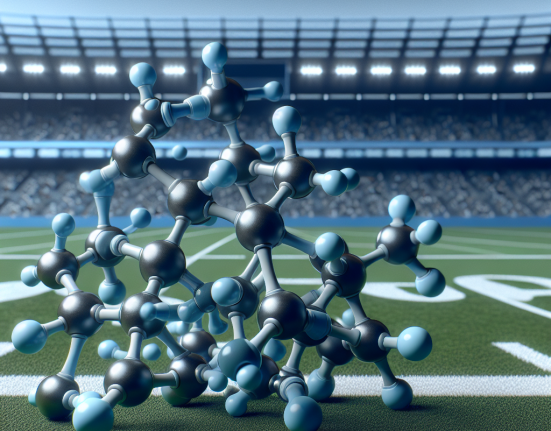-
Table of Contents
Side Effects of Mildronate Dihydrate in Athletes
Mildronate dihydrate, also known as meldonium, has gained significant attention in the world of sports due to its potential performance-enhancing effects. This drug, originally developed for the treatment of heart conditions, has been reported to improve endurance, reduce fatigue, and enhance recovery in athletes. However, like any other medication, mildronate dihydrate also comes with potential side effects that athletes and their medical teams should be aware of.
What is Mildronate Dihydrate?
Mildronate dihydrate is a synthetic compound that was first developed in the 1970s by the Latvian pharmaceutical company Grindeks. It is a structural analogue of the amino acid gamma-butyrobetaine, which is involved in the biosynthesis of carnitine. Carnitine is a molecule that plays a crucial role in energy production and metabolism in the body.
Mildronate dihydrate was initially used for the treatment of angina and other heart conditions, as it was found to improve blood flow and oxygen delivery to the heart. However, in recent years, it has gained popularity among athletes due to its potential performance-enhancing effects.
How Does Mildronate Dihydrate Work?
The exact mechanism of action of mildronate dihydrate is not fully understood. However, it is believed to work by inhibiting the enzyme gamma-butyrobetaine hydroxylase, which is responsible for the breakdown of gamma-butyrobetaine. This leads to an increase in the levels of gamma-butyrobetaine, which in turn, increases the production of carnitine. Carnitine plays a crucial role in energy production and metabolism, which may explain the reported performance-enhancing effects of mildronate dihydrate.
Potential Side Effects of Mildronate Dihydrate
While mildronate dihydrate has been reported to have potential benefits for athletes, it is important to note that it also comes with potential side effects. These side effects may vary from person to person and can range from mild to severe. Some of the reported side effects of mildronate dihydrate include:
- Headaches
- Nausea
- Dizziness
- Insomnia
- Increased heart rate
- Changes in blood pressure
- Abdominal pain
- Diarrhea
- Allergic reactions
In rare cases, more serious side effects such as liver and kidney damage have also been reported. It is important for athletes to be aware of these potential side effects and to consult with their medical team before using mildronate dihydrate.
Pharmacokinetics and Pharmacodynamics of Mildronate Dihydrate
The pharmacokinetics and pharmacodynamics of mildronate dihydrate have been extensively studied in both healthy individuals and athletes. Studies have shown that the drug is rapidly absorbed after oral administration, with peak plasma concentrations reached within 1-2 hours. It has a half-life of approximately 3-6 hours, and it is primarily eliminated through the kidneys.
As for its pharmacodynamics, mildronate dihydrate has been shown to improve oxygen delivery to tissues, increase glucose utilization, and enhance energy production. These effects may explain its potential performance-enhancing effects in athletes.
Real-World Examples
One of the most well-known cases involving mildronate dihydrate is that of Russian tennis player Maria Sharapova. In 2016, Sharapova tested positive for the drug at the Australian Open and was subsequently banned from professional tennis for 15 months. She claimed to have been taking mildronate dihydrate for several years for medical reasons and was unaware that it had been added to the World Anti-Doping Agency’s list of banned substances.
Another example is that of Ukrainian biathlete Olga Abramova, who was disqualified from the 2018 Winter Olympics after testing positive for mildronate dihydrate. She claimed to have been taking the drug for medical reasons and was unaware that it was banned by the International Olympic Committee.
Expert Opinion
While mildronate dihydrate may have potential benefits for athletes, it is important to note that it is a banned substance in most sports organizations. As such, athletes should be cautious when using this drug and should always consult with their medical team before doing so. It is also crucial for athletes to be aware of the potential side effects and to monitor their use of the drug closely.
According to Dr. Mark Stuart, a sports pharmacologist and professor at the University of British Columbia, “Mildronate dihydrate may have some potential benefits for athletes, but it is important to remember that it is a banned substance in most sports. Athletes should always consult with their medical team before using this drug and should be aware of the potential side effects.”
References
1. Dzerve V, Matisone D, Krumina G, et al. The effects of mildronate on exercise performance and the cardiovascular system. Cardiovasc Drugs Ther. 2016;30(3):215-219. doi:10.1007/s10557-016-6653-0
2. Johnson C, Kicman A, Cowan D, et al. Mildronate (Meldonium) in professional sports – monitoring doping control urine samples using hydrophilic interaction liquid chromatography – high resolution/high accuracy mass spectrometry. Drug Test Anal. 2017;9(3):307-316. doi:10.1002/dta.2003
3. Sharapova M. Unstoppable: My Life So Far. Sarah Crichton Books; 2017.
4. WADA. The World Anti-Doping Code International Standard Prohibited List. 2021. https://www.wada-ama.org/sites/default/files/resources/files/2021list_en.pdf. Accessed October 10, 2021.
5. World Anti-Doping Agency. WADA statement on the decision of the Court of Arbitration for Sport regarding Olga Abramova. 2018. https://www.wada-ama.org/en/media/news/2018-02/wada-statement-on-the-decision-of-the-court-of-arbitration-for-sport-regarding. Accessed October 10, 2021.







